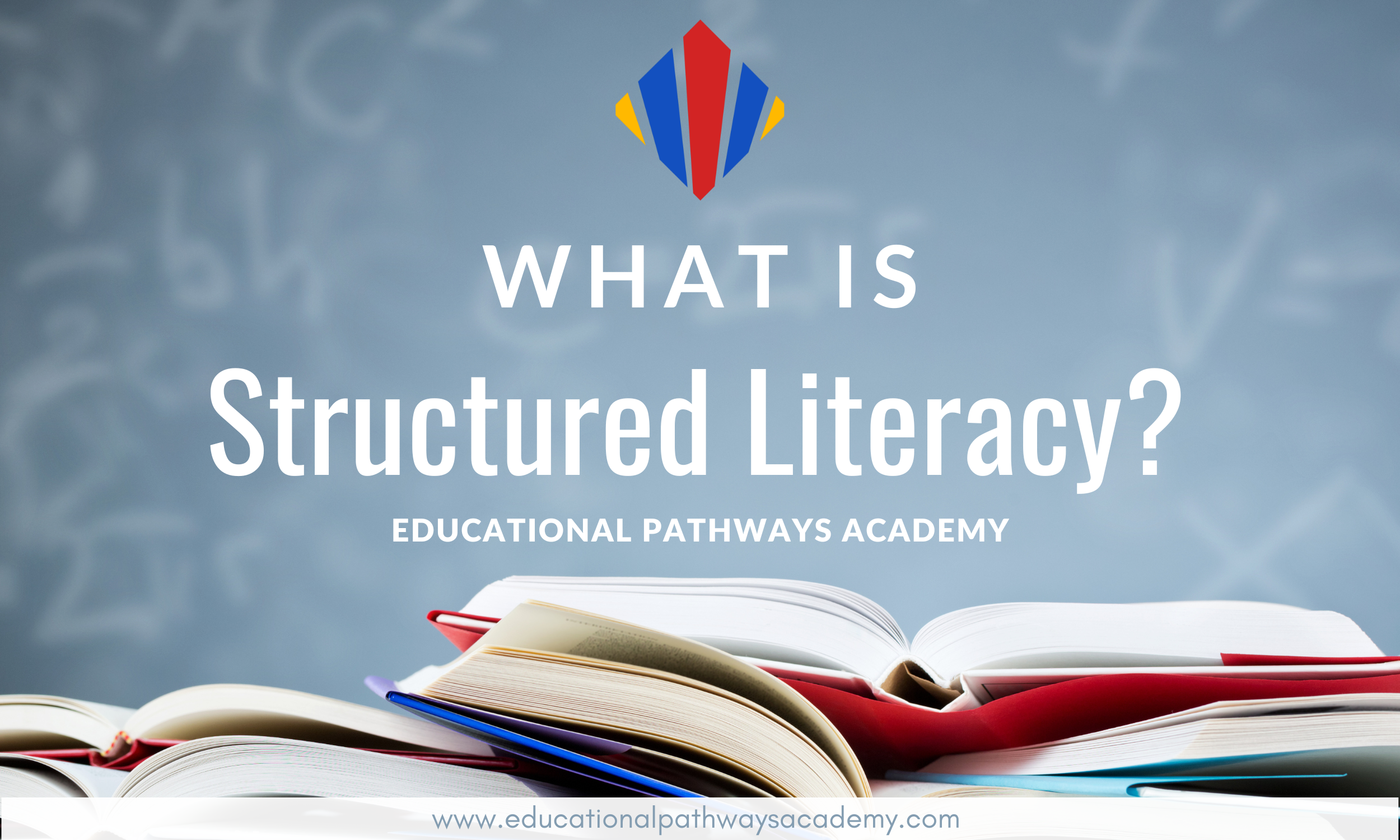Unlocking Literacy Success for Students with Learning Disabilities | Reading Intervention & Literacy Program
Language-based learning disabilities encompass a diverse range of challenges that can significantly impact a student’s literacy development. These learning disabilities, such as dyslexia, dysgraphia, executive dysfunction, auditory and visual processing disorder, receptive/expressive language disorder, attention-deficit/hyperactivity disorder (ADHD), and others, tend to affect fundamental aspects of reading and writing skills. They often result in difficulties related to phonological awareness, word recognition, spelling, reading fluency, comprehension, and overall language processing. While the specific challenges can vary widely among individuals, early identification and tailored support are essential to help students with learning disabilities overcome these obstacles and develop strong literacy skills.
At Educational Pathways Academy (EPA),a private school for learning disabilities in Florida, we firmly believe that every child, regardless of their unique learning profile, deserves the opportunity to flourish and succeed. We understand the profound impact that a strong foundation in literacy has on a child's academic journey and self-confidence. Therefore, we have developed a Reading Intervention and Literacy program that effectively addresses the reading and writing needs of students with learning disabilities that empowers them to thrive.
Reading Intervention and Literacy Program
Navigating the Path to Skilled Reading
Becoming a skilled reader is a multifaceted journey that requires the development of numerous interconnected skills. It all begins with phonological awareness and decoding, where readers learn to connect sounds to symbols and translate letters into words. Sight recognition and word recognition soon follow, enabling smoother reading and fluency. Vocabulary acquisition adds richness to comprehension, while a strong foundation in language comprehension and background knowledge fosters deeper understanding and context. The intricacies of language structures allow readers to dissect complex sentences, while honed verbal reasoning skills facilitate inference and interpretation. Finally, literacy knowledge, encompassing grammar and punctuation, enhances overall proficiency. With perseverance, individualized strategies, and a nurturing learning environment, students with learning disabilities such as dyslexia can develop the necessary skills to engage with texts and succeed academically.
3-Pronged Approach to Literacy
Educational Pathways Academy provides a comprehensive 3-Pronged Approach to Literacy that integrates Orton-Gillingham, Literacy Lab, and Language Arts. In each prong, we employ explicit, systematic, sequential, multisensory, and individualized strategies for literacy instruction, with each prong serving a unique role in advancing literacy skills.
Orton-Gillingham Approach (OG):
Orton-Gillingham is a structured literacy instructional approach that breaks down complex reading and spelling skills involving letters and sounds into manageable steps. These skills are then built on over time, ensuring that students master one skill before moving on to the next. This prevents gaps in understanding and fosters a sense of confidence and accomplishment.
The Orton-Gillingham approach also provides explicit and structured instruction through multisensory lessons. The multisensory lessons, which engage multiple senses such as visual, auditory, and kinesthetic, reinforce learning and enhance memory retention. This makes it easier for students to grasp and apply what they've learned. This approach is particularly beneficial for students with learning differences and essential for students with dyslexia.
Our certified Reading Specialists are highly skilled and extensively trained in Orton-Gillingham through the Institute of Multi-Sensory Education (IMSE).
Literacy Lab:
Literacy Lab utilizes computer-based reading programs that accelerate reading achievement by incorporating research-proven strategies. These programs build fluency, develop phonics skills, improve vocabulary and comprehension, and more. In Literacy Lab, students receive individualized literacy support. The pace and level of instruction is adapted to each student’s unique learning profile. This personalized approach not only addresses areas of difficulty but also boosts students' self-assurance and motivation.
Language Arts:
Language Arts includes a comprehensive writing program that employs Thinking Maps® to establish a strong foundation for writing. The structured writing curriculum supports students in developing the knowledge and skills necessary for writing achievement, emphasizing essential elements like the main idea, supporting details, organization, coherence, and conventions. The use of Thinking Maps®, a set of visual-verbal learning tools, helps students create concrete images of abstract thoughts and effectively plan and organize their writing.
Literature-based instruction also places a strong emphasis on authentic literature, which harnesses the power of well-crafted stories to engage and inspire. Through the use of authentic literature, students are immersed in meaningful and relatable content, allowing them to engage deeply with the material and enhance their reading comprehension and analytical skills.
Educational Pathways Academy’s Reading Intervention and Literacy Program has proven to be transformative for students with learning disabilities. By recognizing the unique needs of each student and customizing our instruction to address those needs, we've witnessed remarkable strides in improving reading skills and overall literacy. The structured, multisensory techniques of Orton-Gillingham, combined with the interactive and collaborative features of Literacy Lab and creative and comprehensive instruction of Language Arts create a holistic and empowering learning experience.




